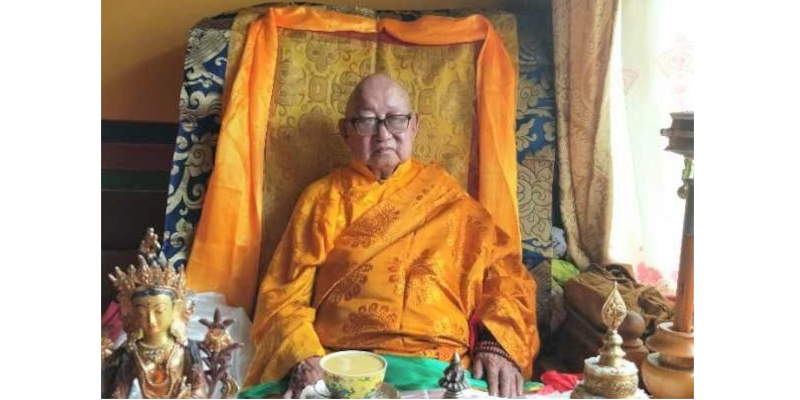Dharamshala, 29th March: Chinese authorities prevented devotees from attending a popular Tibetan lama’s funeral earlier this year and removed photographs of the religious leader that were published online, according to RFA. Choktrul Dawa Rinpoche, 86, died on Jan. 30 at his home in Lhasa, Tibet’s capital, and reached a state known as thukdam, in which a skilled meditator’s mind is thought to remain in the body for a period of time.
According to one of RFA’s sources, the Chinese government attempted to keep Rinpoche’s death a secret as possible, warning individuals not to publish news of his death online. The Chinese government also promptly removed photographs and videos of Rinpoche that had previously been posted online.
Choktrul Dawa Rinpoche, a senior teacher at the Ganden Dargyeling monastery in Nagchu (in Chinese, Naqu) county in the Tibet Autonomous Region, was sentenced to seven years in prison in 2010 for discussing monastery affairs with Tibetan spiritual leader the Dalai Lama, who is now living in exile in India.
The source claimed that following his release, Chinese officials kept him under tight surveillance for the remainder of his life. When Rinpoche’s thukdam ended on Jan. 13, Chinese security agents were dispatched to guard his home, barring devotees from paying their respects and allowing only Lhasa locals to enter. The Chinese authorities then agreed to allow Rinpoche’s body to be relocated from Lhasa to the Ganden Dargyeling monastery in Nagchu on Jan. 18 following several requests from Rinpoche’s disciples. Only two vehicles, however, were permitted to accompany him there. Only a few Tibetans were eventually allowed to pay their respects, resulting in a brief scuffle between Tibetan pilgrims and Chinese authorities. Only monks from Rinpoche’s own monastery were allowed to attend his cremation on Jan. 25, and all cell phones were inspected prior to the ceremony to ensure no images were taken.
Choktrul Dawa Rinpoche, who was born in Nagchu in 1937, had previously served five years in prison after being imprisoned in 1960 for fighting China’s conquest of Tibet and had also served seven years in prison during China’s Cultural Revolution (1966-1976).

